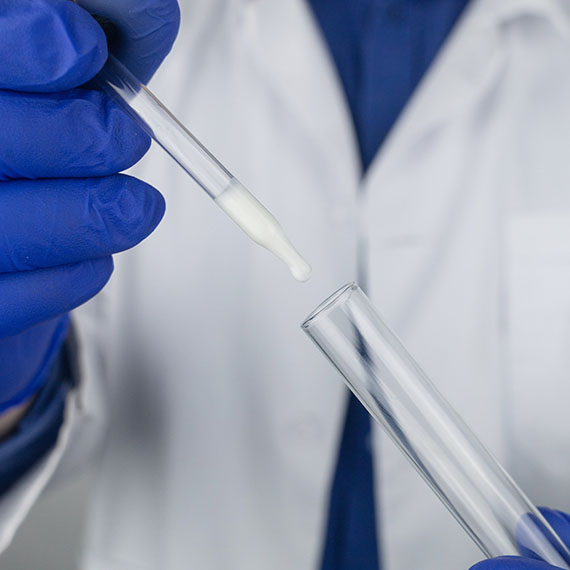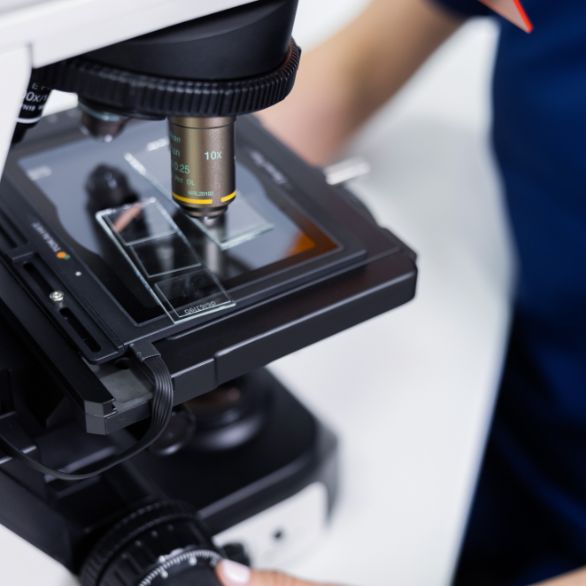Investigation of recurrent miscarriages
Recurrent miscarriages affect a significant number of couples. It is essential that both partners undergo evaluation. The investigation of the cause concerning the man is carried out with the following tests.
What is Included

Karyotype
We evaluate the number and structure (size and shape) of the chromosomes in peripheral blood cells. Abnormalities in the karyotype are often the genetic cause of infertility and/or recurrent miscarriages.
DNA Fragmentation Index (DFI)
The percentage of spermatozoa with damaged DNA is determined using the TUNEL method, which is the most reliable technique for this purpose. These spermatozoa have undergone cell death processes and either may not be able to fertilize the egg, or if fertilization occurs, the embryo may fail to implant or lead to miscarriage. Increased levels of fragmented DNA will negatively affect the chance of achieving pregnancy naturally.


FISH analysis of sperm
We assess the number of chromosomes in spermatozoa by detecting the absence or duplication of entire chromosomes involved in spontaneous miscarriages and responsible for the transmission of chromosomal abnormalities to offspring. In cases of abnormal FISH results, pre-implantation screening is recommended.
PCR for Mycoplasma, Ureaplasma, Chlamydia
We utilize the most specialized molecular method, PCR, to detect the aforementioned microorganisms associated with miscarriages. This method detects the DNA of microorganisms or viruses, so their presence even in very small quantities is sufficient to yield a positive result. Specifically, as few as 500 copies of their DNA can be detected.


Personalized Advice
Based on the results, we provide personalized advice for addressing infertility.